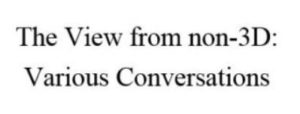
Thursday, July 23, 2015
It occurs to me that JFK aide Ted Sorensen, who didn’t die until he was 82 (in 2010) thought JFK didn’t know the things Sorensen hadn’t explicitly said, before and especially after Kennedy died. Such unnecessary suffering, for so many years.
7:30 a.m. Mr. Sorensen, if you can hear,
You forget connections. How could I be so close to Jack Kennedy and not be connected to those who love him?
It must have been a great joy to you, realizing that he knew how you felt, and felt your long mourning.
To tell the truth, my long suffering began to look more like a waste of time than anything else. It wasn’t ever necessary, from one point of view. The shock, the recognition of loss, yes. But life goes on, and Jack himself was not injured by being killed in broad daylight, to go out in a blaze of undying light. My religious belief did not extend to thinking that he would continue to have an active role, be an active presence. I just never envisioned it. I was consumed by loss.
I know what you were feeling. You did not in addition have the overlay of belief telling you that your feelings were wrong because it was just fine to leave the world.
Everybody’s beliefs carry their own downside. I who had been a participant rather than an observer found it particularly hard, because now I had no role.
None you wanted to play, anyway.
That’s right. But there was still all that life to live, with no heart in it. It took a good few years for me to see the imbalance in my life and move toward a more active emotional life tuned to what people would call everyday things rather than reshaping the world.
Your idealism shone. But maybe it didn’t make others love you any better.
It wasn’t my idealism, it was my intolerance. I was totally focused on the president’s needs, and therefore on what I needed if I was going to serve him, and I’m afraid everybody else and everything else took only a seat in the far background. Nobody likes being cast as an extra.
It occurs to me, you were more like Bobby in that brusque single-minded efficiency, and maybe that is why you were disliked by some without your even noticing.
Like Kenny O’Donnell, you mean. Yes, I expect so. It is hard to go from being on the very inside to playing second fiddle, and I think a lot of the people who had been with candidate and then representative Kennedy began to feel pushed aside or dropped behind, however you want to put it, when I came in and became the intellectual companion of Senator Kennedy. And it only became worse for them when he became president and I had the inside slot.
I don’t have questions at the moment. But I sense there may be something you want to say.
I will say it. Will you hear it?
Let’s see.
What “gave you the idea” to talk to me just now?
The thought of your unnecessary suffering because you thought it had been too late to tell the president what you thought of him.
And that of course was “your” thought.
I get the point.
So – this is important. It began with Lincoln in Chasing Smallwood. It has increased in breadth and intensity. Tell people. Tell it as a story, reconstructing it from your journals as you go. Make it accessible, but tell people they are not cut off. It is a simple message, so don’t make it too complex. But it has extensive repercussions, connecting private life and public affairs. You can tell that, and it will be your contribution.
If I could entirely believe in this –
Sometimes you have to go ahead even when you aren’t sure.
I do see that.
Be your own secretary, write the book the same as the ones you have published as compilations. Write it bit by bit in your journal, transcribe and print, and keep going until you have a book. There isn’t any deadline but you ought to get started.
Perhaps I will. I can get a three-ring binder for it and watch the accumulation.
You can copy some of your transmissions but don’t succumb to your encumbering habit of copying massive amounts of text and trying to reshape it. A bit of typing now will save you a lot of culling later.
All right. This feels like Muddy Tracks all over again.
In general, yes. More concise, not as all-inclusive – select your data, in other words – but yes. Talk to the reader with only two or three things to get across—
Everyone has access
We in non-3D are not statues.
Interaction can enrich your life
Or, if that doesn’t work out, it is easy enough to find other points.
Thank you for all this – and for what you helped Jack Kennedy do.